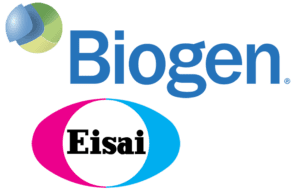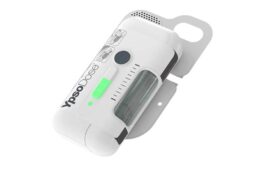 Tokyo-headquartered Eisai Co. is preparing to share efficacy, safety and biomarker findings from its Phase 3 confirmatory clinical study of the amyloid beta-protein inhibitor lecanemab.
Tokyo-headquartered Eisai Co. is preparing to share efficacy, safety and biomarker findings from its Phase 3 confirmatory clinical study of the amyloid beta-protein inhibitor lecanemab.
The company will present full results from the Phase 3 confirmatory Clarity AD study of lecanemab in patients with early Alzheimer’s disease in a session at the Clinical Trials on Alzheimer’s Disease conference on November 29.
Eisai is jointly developing the antibody with Biogen (Nasdaq:BIIB).
Last week, Roche (SWX:ROG) said that its Alzheimer’s hopeful gantenerumab flunked two Phase 3 studies, failing to meet the primary endpoints in either one.
Gantenerumab won breakthrough therapy designation from FDA in 2021.
In late September, Eisai and Biogen reported positive Phase 3 trial results for lecanemab, noting that the drug candidate met primary and key secondary endpoints. Lecanemab recipients had a 27% reduction in disease progression with a p-value of 0.00005. In addition, the companies noted that the trial yielded “highly statistically significant results.”
Physicians on the social media platform Sermo were muted in their optimism related to lecanemab. A Sermo survey involving more than 160 practicing physicians found that 84% were concerned that patients and loved ones in their practices are overly optimistic about the lecanemab’s potential to treat Alzheimer’s disease. In addition, more than two-thirds, 69%, believed the incremental benefit of lecanemab could have unintended consequences, prolonging the hardships involved in caring for Alzheimer’s patients.
In late October, STAT reported that lecanemab may have played a role in one clinical trial participant’s death following a brain hemorrhage. However, because the data in the study remain blinded, it isn’t possible to verify that the participant received lecanemab or a placebo.
A total of 36% of physicians participating in the Sermo survey said the death report has negatively influenced their minds about the lecanemab’s potential.
More than half (55%) of physicians need clarification about what types of patients would benefit from lecanemab, while 87% of participants speculated that insurance providers would be resistant to covering lecanemab if the FDA approved it.
Eisai shares on the OTC Markets Group exchange were down 0.83% to $63.49. Biogen shares were mostly flat, dipping 0.42% to $301.63.
Eli Lilly (NYSE:LLY) is also developing a similar monoclonal antibody known as donanemab for Alzheimer’s disease. Data from the Phase 3 TRAILBLAZER-ALZ 2 study are forthcoming.
Filed Under: Drug Discovery, Drug Discovery and Development, Neurological Disease



